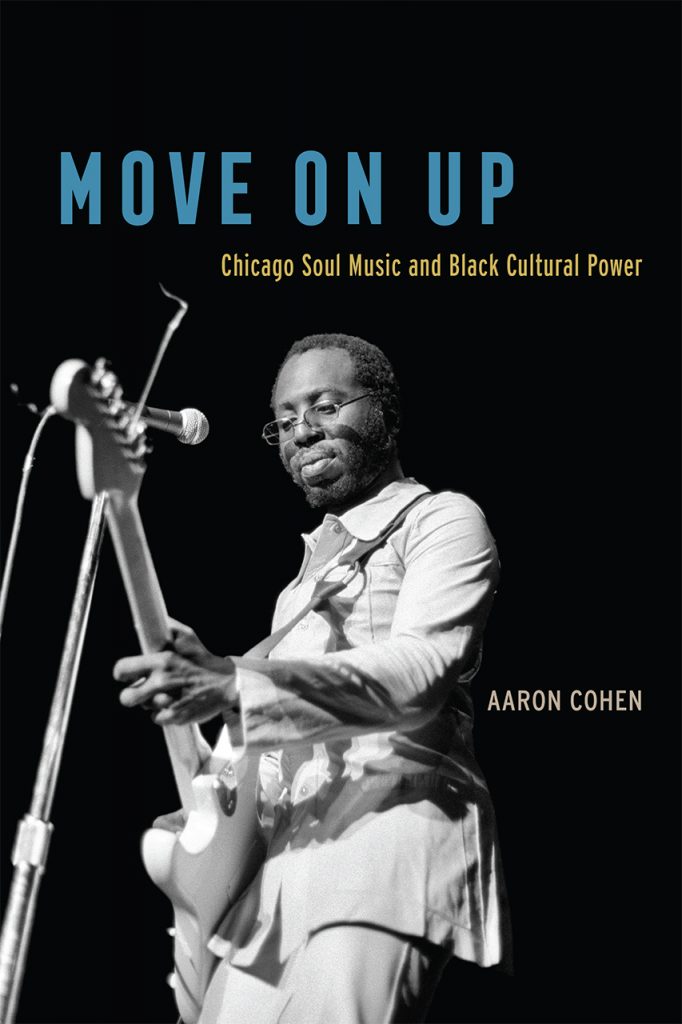
The soul music that Chicago sold to the rest of the nation beginning in the late 1950s was more than a cavalcade of rapidly evolving, irresistibly grooving tunes. It was a both a soundtrack and a motor for empowerment. This is the case that Aaron Cohen, who has written for the Chicago Tribune, Downbeat and contributed a volume about Aretha Franklin’s Amazing Grace to the 33 1/3 series, makes in Move On Up.
An academic as well as a journalist, Cohen presents his argument with a balance of rigorous research and affection for the music that makes this book both enjoyable and edifying. He interviewed more than 100 subjects, many of them people who not only made the music, but made marks upon the city’s commerce and politics. There’s Jerry Butler, who was in the Impressions with Curtis Mayfield and later became a Cook County commissioner, and Gene Chandler, who came up with “The Duke Of Earl” when he was a teenager and was still having hits at the height of disco. There’s Phil Cohran, an early associate of Sun Ra who went on to co-found the Association For The Advancement Of Creative Musicians and co-lead the Afro-Arts Theatre, where Chaka Khan learned about the avant-garde and herbalism.
You can’t talk about music and the middle of the 20th century without discussing race. Racial boundaries obliged people like James Mack, who might have been composing symphonies, to arrange strings for pop songs, and the music was better for it. Cohen shows how musicians and producers including Terry Callier, Baby Huey, the Rotary Connection and Charles Stepney, while operating in one of the U.S.’s more dedicatedly segregated cities, appropriated elements of folk music, Gregorian chant, 20th century classical music and acid rock, making songs that drew power and appeal from their hybrid qualities.
Cohen explores the deep and complicated connections between performers, street gangs, the Black Panthers and the Nation Of Islam. He goes broad, showing how the African-American musical community got behind the movement that elected Harold Washington, the city’s first black mayor. And he goes micro, telling the story of a teenager named Vince Lawrence who got beat up by a cop’s son in the Bridgeport, then took the money offered if he dropped charges to buy his first synthesizer and help develop house music. And Cohen shows how the development of Chicago’s soul music is also a story of African-American entrepreneurship. Musicians, producers, and label proprietors were all eager to buy in, often in order to get out of limiting circumstances.
—Bill Meyer
Check out a Spotify playlist curated by Cohen:






